A recent article posted to Grist, titled “One in 11 People Went Hungry Last Year. Climate Change is a Big Reason Why,” claims that hunger and malnutrition is worsening because of climate change. This is false on two counts. First, because the weather events and conditions that climate change is supposedly worsening are not actually getting worse, and second, because global hunger and malnutrition stats have actually improved considerably amid the recent period of modest warming.
Grist claims that progress towards a United Nations Sustainable Development plan goal to end all world hunger by 2030 is “backsliding,” and that “access to food is increasingly entangled with the impacts of a warming world.”
While it is true that there was a slight increase in the share of the global population that is undernourished post-pandemic, it is not the case that this is because of climate change. Over the same period that we have been experiencing a slight warming in global average temperatures the world has also seen the most dramatic declines in hunger in world history. (See figures below based on Data from the United Nations Food and Agriculture Organization)
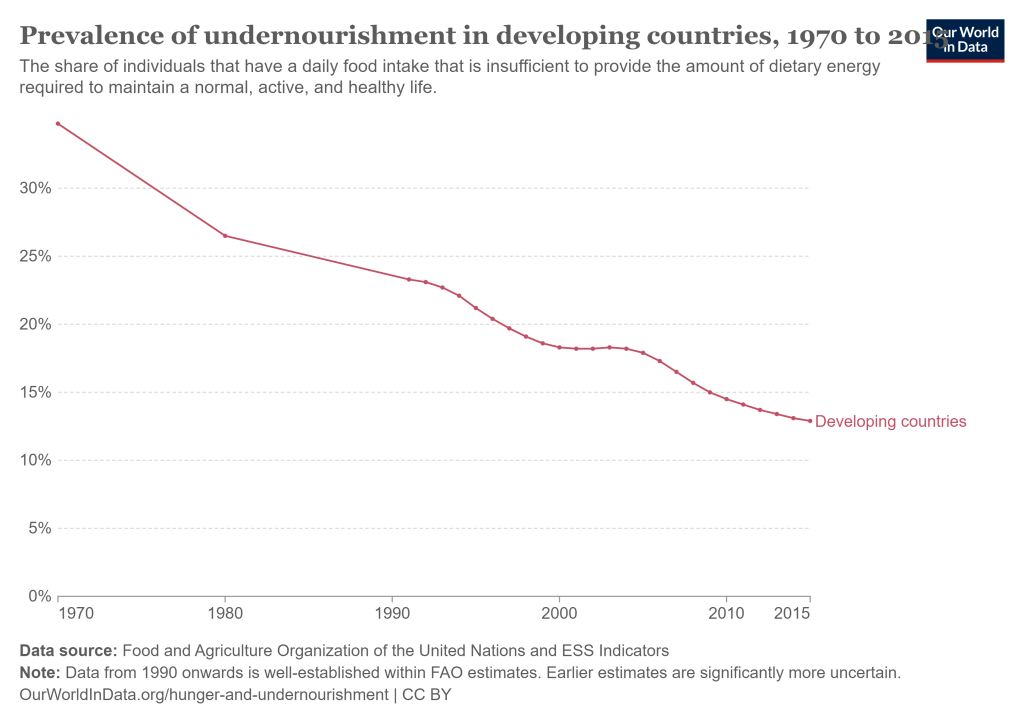
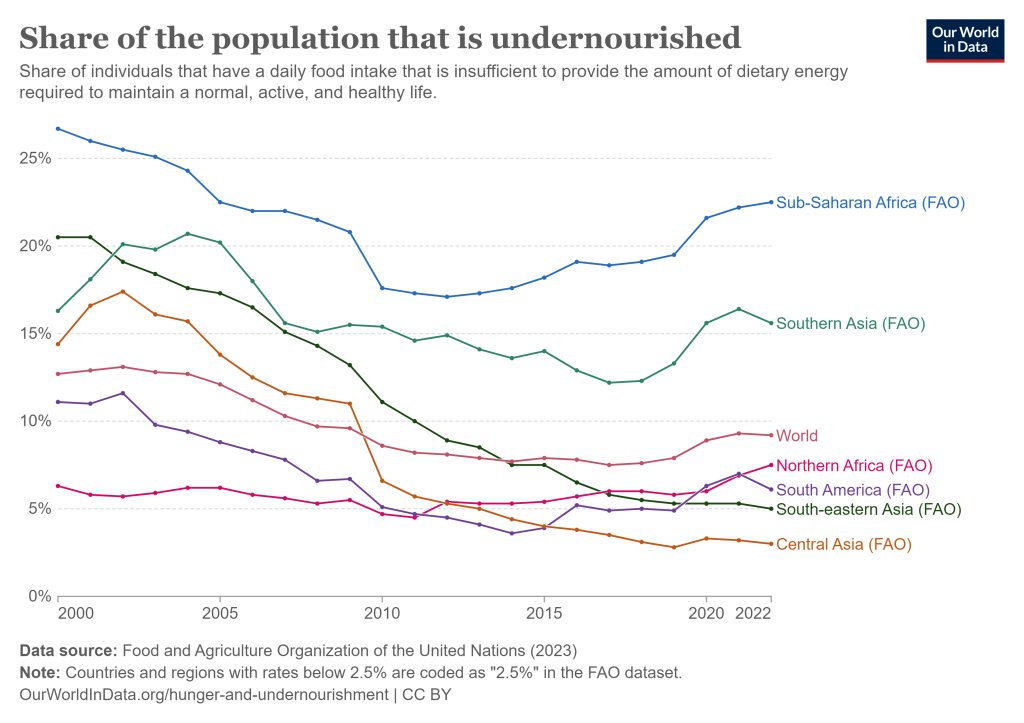
Grist continues:
Climate change is second only to conflict in having the greatest impact on global hunger, food insecurity, and malnutrition, according to the FAO. That’s because planetary warming does more than disrupt food production and supply chains through extreme weather events like droughts. It promotes the spread of diseases and pests, which affects livestock and crop yields. And it increasingly causes people to migrate as they flee areas ravaged by rising seas and devastating storms, which, in turn, can fuel conflict that then drives more migration in a vicious cycle.
Note that the FAO admits local and regional conflicts have the greatest impact on global hunger, and that most of the regions experiencing a trend reversal are those that have frequently been plagued by conflict, such as Sub-Saharan Africa, which has recently seen an increase in terrorist activity and civil conflicts. This is not the first time the media or international leaders have attempted to blame instability caused by corruption and terrorism on climate change. Last year in Somalia, for example, the U.N. Secretary-General Antonio Guterres gave a speech where he blamed the nation’s poor crop production on climate change. When Climate Realism looked at the crop production data of Somalia’s two closest neighbors, and found both were setting records while Somalia floundered, it became clear that climate was not the problem.
Drought has not been getting worse, as Grist claims. The U.N. Intergovernmental Panel on Climate Change’s Sixth Assessment Report indicates that they do not have evidence a climate signal exists for either hydrological, agricultural, or ecological drought. (See figure below)
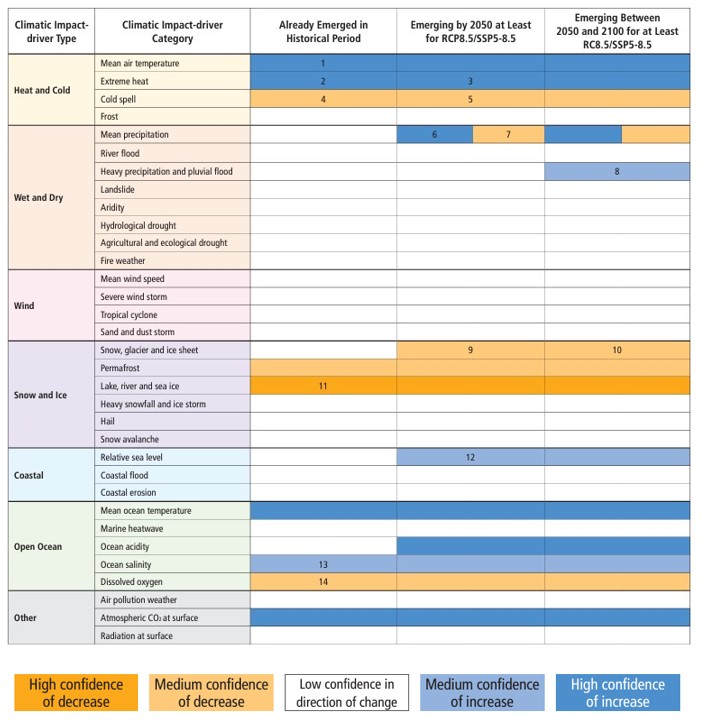
The claim that climate change spreads disease and pests is similarly unfounded, as explained in posts by Climate Realism here, here, and here.
The claim that climate change is causing mass migration, creating so-called climate refugees, is likewise false. The United Nations own data indicate that climate-related natural disasters have actually declined this century. (See figure below)
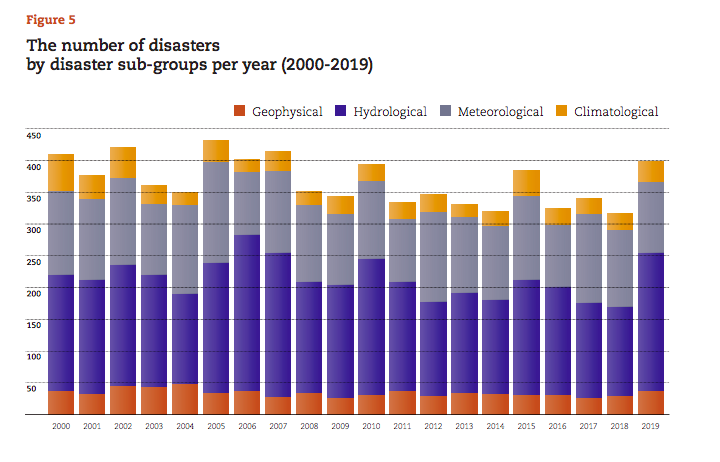
Crop production has steadily increased for the vast bulk of the planet, as has been discussed dmore than 100 articles at Climate Realism. For example, (FAO) data show that global production of the world’s most important crops continued to set records amid modest warming over the past few decades. (see the figure below)
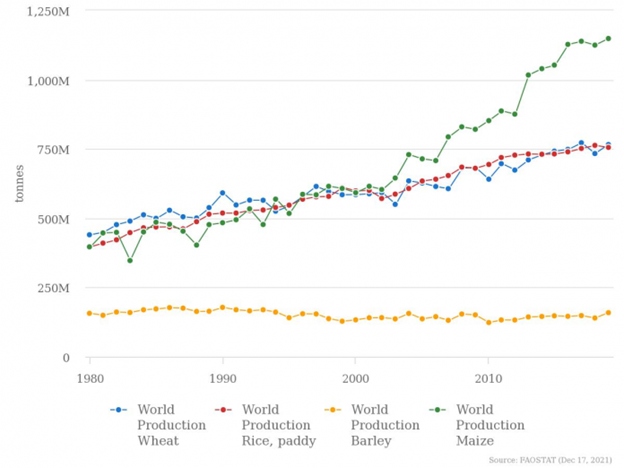
Rising carbon dioxide levels in the atmosphere have been boosting plant growth, including crop production. By contrast, climate policies, like so-called sustainability efforts, are already threatening food production locally, and could result in lower crop yields and less resilience to extreme weather in general going forward. The G-20, an international alliance of wealthy nations plus the African Union, has called for the majority of spending on developing nations to go towards climate-related goals, with the leftovers set aside for food and medicine. Developing countries could significantly reduce problems with hunger and malnutrition if they had more access to reliable energy from fossil fuels that sustainability advocates want to eliminate. They could further increase food production if they had access to the tractors, fertilizers, and pesticides that all require fossil fuel inputs. Instead, the very organizations that are supposed to help are actually harming them.
Grist is carrying water for the very organizations that are hindering the ability of developing nations to fight hunger in the way that the rest of the world has. As is so often the case, climate change is being blamed for food security issues that are really the fault of poor institutions, government corruption, war, and government policies.

















